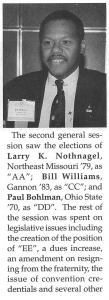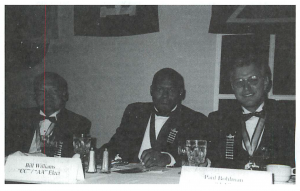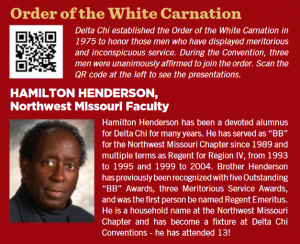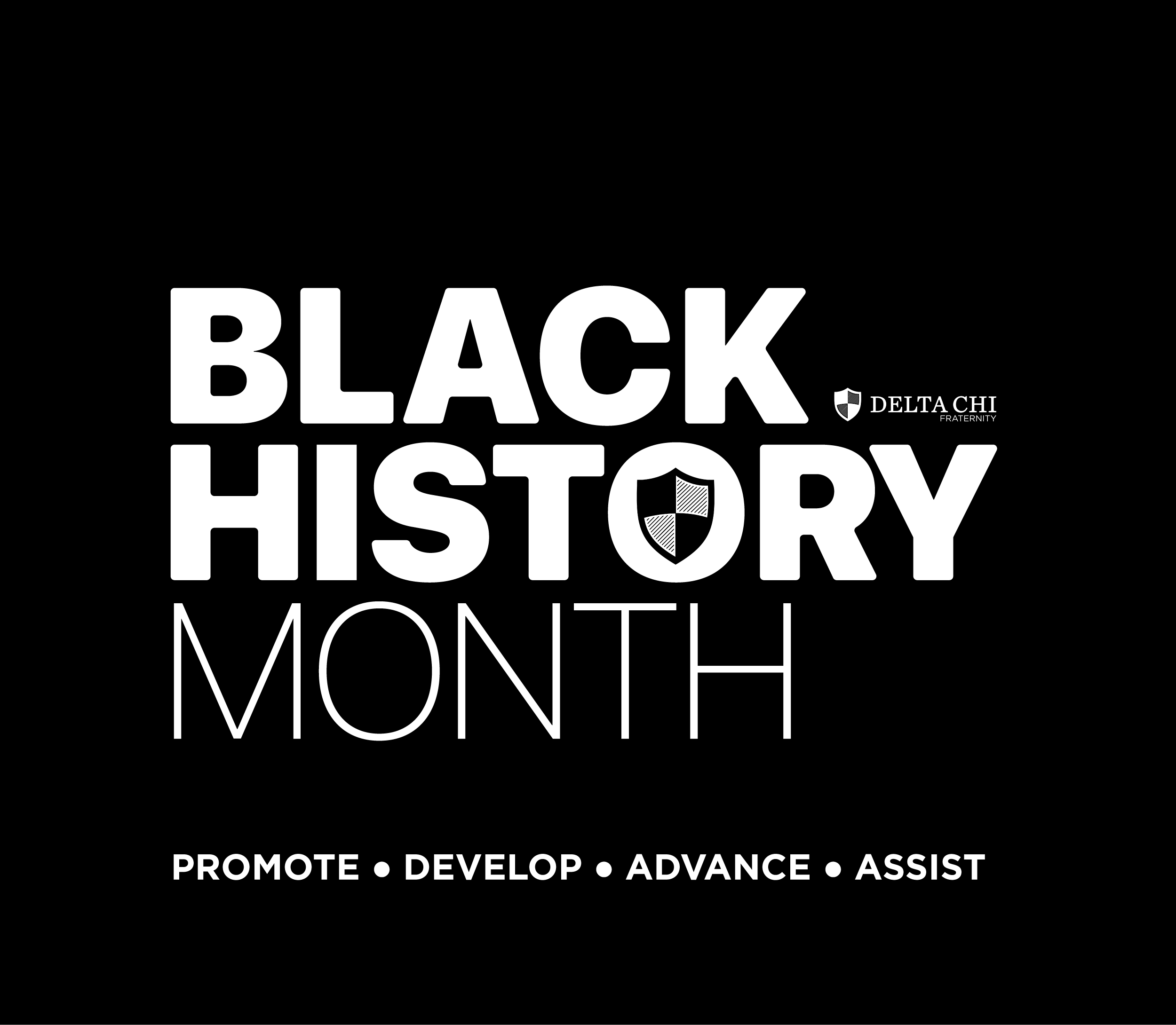February 2021
A History of Black History Month
Since 1976, each president of the United States has designated February as Black History Month.
The origin of Black History Month can be traced even further back to 1915, when an organization called the ASALH, led by Harvard-educated historian Carter G. Woodson was formed.
The ASALH dedicated its time to researching the achievements of Black Americans and other people of African descent.
In 1926, the ASALH sponsored a Negro History Week and chose the second week of February to recognize the birth dates of Abraham Lincoln and Frederick Douglass.
The goal was to inspire schools and communities across the United States to organize local celebrations, activities, and lectures in an effort to teach Black history as it had never been taught before.
Between 1926 and 1976, mayors nationwide issued annual proclamations to celebrate Negro History Week. By the 1960s, the week had transformed into a full month of celebrations and was signified by President Gerald Ford as a national observance in 1976.
Today, Black History Month is also celebrated in other countries around the world, including Canada and the UK.
–History provided by Dante Nichols of Later
Resources
History of Black History Month
Black History is American History
Dream: 28 Moments of Black Canadian History
Black History Month: What Is It?
History Channel Celebrates Black History
Delta Chi Dates of Significance
1954
At the 30th International Convention in 1954 held in Biloxi, Mississippi, the members of the Fraternity voted to remove the “White Clause” from Delta Chi Law. This change to the bylaws paved the way for the Fraternity to become a more inclusive organization.
1991
Delta Chi elected its first African-American Regent, Bill Williams, Gannon ‘83, in 1991. Williams had previously served as a Vice Regent in 1990.
1994
At Delta Chi’s 49th International Convention held in Atlanta, Georgia, Bill Williams, Gannon ’83, became the first African-American member elected to the Executive Committee, being named the International Secretary (“CC”) on August 4, 1994 during the Convention’s second general session.

A snippet from the Fall 1994 Quarterly 1998
At the 51st International Convention in St. Louis, Missouri, Delta Chi elected its first African-American “AA”, Bill Williams, Gannon ‘83, during the second general session on August 6, 1998.
In his first Founders’ Day message, Williams included the following in his letter:
“The 51st Convention selected me to the position of ‘AA’. This marks the first time that an African-American has been elected to this position in the history of the Fraternity. This milestone in Delta Chi history takes on a greater sense of achievement when one stops to consider that, until the 1954 Convention, membership in Delta Chi was restricted to white male college or university students. I thank you for seeing beyond my color and into the content of my heart and the character of my spirit (soul).”

A snippet from the Fall 1998 Quarterly 2006
At the 55th International Convention in Cleveland, Ohio, Ron Montgomery, Oshkosh ’88, became the first African-American “BB” Emeritus on July 26, 2006.

A snippet from the Fall 2006 Quarterly 2012
At the 58th International Convention in Pittsburgh, Pennsylvania, Hamilton Henderson, Northwest ’82, became the first African-American member of the Order of the White Carnation on August 2, 2012.

A snippet from the Fall 2012 Quarterly 2019
In summer 2019, Cameron Barnett, Duquesne ’11, was named the first African-American Ritualist and Chairman of the Ritual Committee in Delta Chi.

Cameron Barnett (top row, center) overseeing the Delta Chi Ritual at the 2020 Virtual Oath of Initiation
Graphics

“Be proactive in seeking out stories that even you, yourself, could be new to. Most of us know that Rosa Parks refused to give up her seat at the front of a bus during the Civil Rights era provoking a forceful and righteous bout for equality. But why not tell the story of Claudette Colvin? Who, in 1955, before Parks, also refused to give up her seat on a segregated bus in Montgomery, Alabama?”

-Darren Griffin of Planoly
Events
During the month of February, there are several free, online events taking place that both celebrate black history and facilitate difficult conversations about today’s social justice issues. We highly encourage you to utilize the list below, or find your own event to attend.
Film Screening:
“13th”
When: Thursday, February 11, 2021 • 6:00 pm – 8:00 pm
Where: Online
How: Register Here
In celebration of Black History Month, Holocaust Museum Houston will host a one-night screening of the highly acclaimed 2016 documentary film, “13th.” Filmmaker Ava DuVernay explores the history of racial inequality in the United States, focusing on the fact that the nation’s prisons are disproportionately filled with African Americans.
In Dialogue:
Social Smithsonian Objects and Social Justice
When: Thursday, February 11, 2021 • 5:00 pm – 6:00 pm
Where: Online
How: Watch Here
Each month, educators from the National Portrait Gallery will partner with colleagues from across the Smithsonian to discuss how historical objects from their respective collections speak to today’s social justice issues. For this program, Scholarly and Social Justice Program Lead, Leslie P. Walker, will have a discussion with NPG colleague Beth Evans about race and medicine as represented by related objects.
(Re)Making History:
Memory, Mythmaking, and the Civil Rights Movement
When: Friday, February 12, 2021 • 5:30 pm – 7:00 pm
Where: Zoom Webinar
How: Register Here
Join Dr. Hasan Jeffries for a lecture that will explore the ways popular misconceptions about the civil rights movement remake history, altering everything from the African American freedom struggle’s leadership, goals, tactics, and guiding philosophies, to the depth and breadth of the white opposition, including the form and function of racial terror. Drawing on popular media forms, including movies and political cartoons, this workshop will interrogate leading myths about the African American fight for equality. The films and cartoons will serve as a starting point for exploring the origins of these myths, clarifying the truths these fabrications conceal, and for illuminating the ways these stories shape contemporary discourse on racial inequality and Black protest.
A Sunday to Remember:
A Living History Program
When: Sunday, February 21, 2021 • 2:00 pm – 3:00 pm
Where: Online
How: Register Here
African Americans have served proudly in every great American war. In 1866, through an act of Congress, legislation was adopted to create six all African Americans Army units. This two-man show is part of the Buffalo Soldiers National Museum’s Living History program. In it, two men, Benjamin and Joe, will describe their involvement during the Civil Rights Movement, according to the museum’s website, including the March 7, 1965, march in Selma, also known as “Bloody Sunday.”
An Evening with the Lacks Family:
The Story Behind the Immortal Life of Henrietta Lacks
When: Tuesday, February 23, 2021 • 6:00 pm – 7:00 pm
Where: Online
How: Register Here
In 1951, Henrietta Lacks’ cells were taken without her knowledge by doctors at Johns Hopkins Hospital. Her cells became the first immortal human cells grown in a lab, and have aided medical innovations like the polio vaccine, gene mapping, in vitro fertilization, and more. In this moderated discussion, Lacks’ family will discuss how they found out, years later, about her cells.


